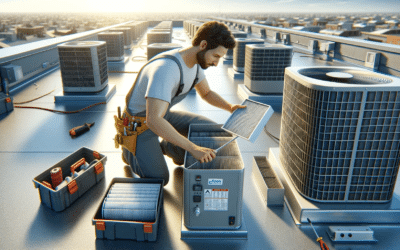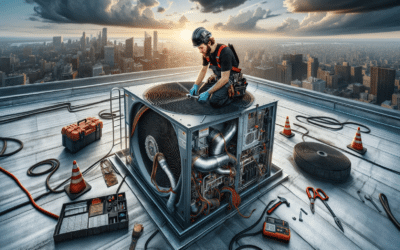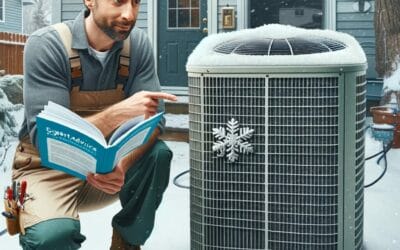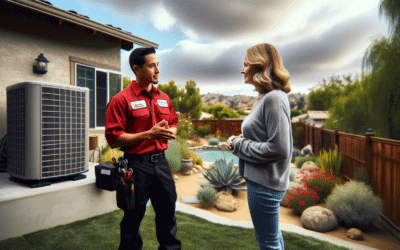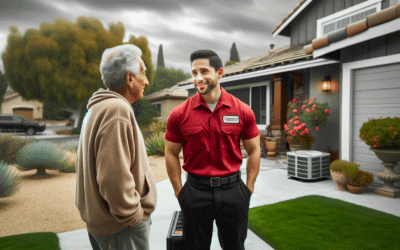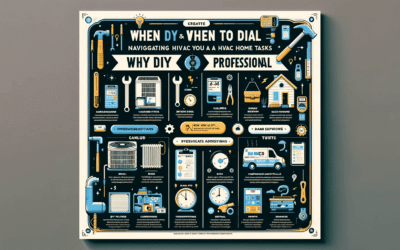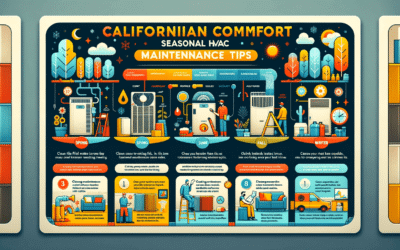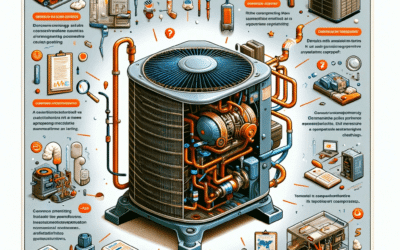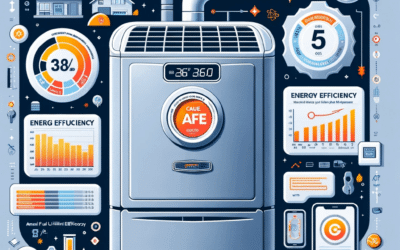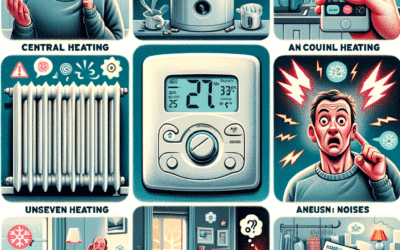Welcome to our comprehensive guide on single stage furnaces. Designed especially for homeowners, this detailed post sheds light on the intricacies of single stage furnaces, diving deep into the technical details, its functionality,...
HVAC Maintenance
Important Details In A Commercial HVAC Maintenance Agreement
Maximizing Efficiency with HVAC Systems in Commercial Spaces The role of Heating, Ventilation, and Air Conditioning (HVAC) systems in commercial settings cannot be overstated. Essential for creating a comfortable, safe, and energy-efficient...
Why A Regular Commercial HVAC Maintenance Saves You Money?
Commercial heating, ventilation, and air conditioning (HVAC) systems are vital components of business infrastructure, crucial for maintaining a comfortable, healthy, and efficient environment. Given their significance, it's noteworthy that HVAC...
Expert Advice: Should You Cover Your AC in Winter? A Guide
Welcome! As winter draws near, you might be wondering whether or not to cover your air conditioning unit. In this informative guide, we gather expert advice to address the query, "Should You Cover Your AC in Winter?". Drawn from credible sources...
Comfort Time: Heating and Cooling Excellence in Downey, CA
A warm welcome in the frosty winter, a cool haven in the scorching summer. That's not just an aspiration, it's a necessity. Enter "Comfort Time: Heating and Cooling Excellence in Downey, CA". Nestled amidst the thriving hustle of Downey,...
Why Buena Park Homeowners Trust Comfort Time for HVAC Needs
On sunlit Californian streets dotted with pastel bungalows, warm, hardworking people rest underneath their roofs, cooled and warmed by the magic of an unseen, silent force - the humble HVAC system. But when this unsung household hero falters, who...
When to DIY & When to Dial: Navigating HVAC Home Tasks
Imagine this: the chilly winter winds are blowing outside while you snuggle comfortably in your warm abode. Suddenly, your once-cozy environment turns cold as ice. Panic ensues. Your trusted friend, your HVAC system, has let you down. In this...
Californian Climate Dance: Get your HVAC Ready for Extreme Weather
As the sun dips below the Californian horizon, painting the sky with hues of red and gold, the state’s eclectic weather takes center stage. One moment it's gently coaxing cherry blossoms to bloom, in another it forces greenery to retreat behind a...
Californian Comfort: Seasonal HVAC Maintenance Tips
As the famous Californian palm trees sway in sync to the rhythm of changing seasons, the heating, ventilation, and air conditioning (HVAC) systems sit quietly in our homes, faithfully committed to keeping us pleasantly cocooned from the varying...
Understanding Your AC: The Lowdown on Bad Compressors
As the unsung hero of summer, your air conditioning unit is a lifeline, a comfort bubble, a cool breath of sanity in the brutal, fiery grasp of July. But what happens when that breath of fresh air feels less like a refreshing breeze and more like a...
Debunking Myths: The Safety and Efficiency of In-Home Heaters
On the frigid winter nights when Jack Frost waltily descends, tucking us in a snowy, uninvited embrace, the warm, comforting chimes of an in-home heater can feel like a heroic knight breaking through the ice castle. Despite this quintessential...
Things To Remember To Keep Your AC In Good Condition
We all know the importance of maintaining an HVAC system. And we also understand that sometimes bad practices can result in a broken machine, but what are you doing wrong? Find out so this doesn't happen to your home! The time to check your A/C...


